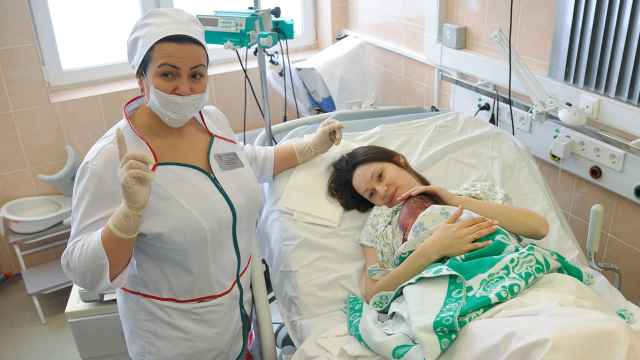Accusations of fudging figures have dogged the Russian government in recent years. It is true that researchers have ample reason to question the authenticity of statistics: a growing amount of data is being classified and many figures appear calculated to please the Kremlin.
That does not mean, however, that Russian statistics have become as meaningless as their Soviet predecessors. They simply require more careful interpretation.
Much criticism of Russian statistics is justified: official figures contain various forms of demonstrable manipulation. Take the series of presidential decrees issued in May 2012, which seriously distorted mortality data. Eager to show the Kremlin some form of success, regional authorities reassigned mortality codes. Suicides became “injuries of undetermined intent” in official accounting and deaths from circulatory diseases were reclassified as “old age.” According to various estimates, these junk mortality codes now apply to about 10 percent of deaths in Russia.
Coronavirus data are similarly skewed due to deficiencies in regional data collection systems. Despite modest official figures, Russia was among the global leaders in excess mortality. During this period, the authorities also conducted a census so questionable that most experts distrust its results.
Accounting problems are not limited to demographics. Similar issues exist across all areas of official statistics.
Economists argue that Russia’s record-low poverty rate stems more from a revised calculation methodology than from any real improvement in living standards. Sociologists point out that judicial data reflect the priorities of quota-obsessed security agencies, not actual criminality. Environmentalists argue that air pollution data are unreliable because they are based on self-reporting by enterprises.
President Vladimir Putin, who often cites statistics that counter Western forecasts, further complicates matters. Combined with Soviet traditions of fraud, growing authoritarianism and the rapid expansion of secrecy into new domains, this raises legitimate doubts about the value of available figures.
Still, when researchers presume all Russian statistics are unreliable, they do themselves a disservice. The first question to ask is how we even know about these distortions. Few insiders are willing to speak candidly. Rather, evidence of falsification is embedded in the data itself.
Pulling figures out of thin air is harder than it looks. Statistical indicators are interconnected, and interference leaves traces. Fabrication may be subtle or blatant, but it is almost always detectable.
There are many signs of distortions: sudden changes in methodology; abrupt shifts in dynamics or regional context; the use of a figure as a key performance indicator or basis for funding; the presence of conflicting sources and so on. None of these is definitive proof of falsification. But all demand greater scrutiny.
Distortions also vary in nature. Intentional manipulation differs from human error or from the inherent difficulty of measuring complex realities. A simple typo, such as adding an extra zero, can warp national economic indicators without any underlying intent to deceive.
Then there is misinterpretation. Russia’s continued GDP growth may seem paradoxical amid sweeping Western sanctions. It is tempting to dismiss this as fabrication.
However, no serious evidence supports this claim. While indirect anomalies exist, they are likely the result of traditional measurement tools failing to capture the effects of structural transformation in the economy.
A more plausible explanation is that both GDP growth and low unemployment reflect the nature of the crisis, not its absence. The constant production of weapons and acute labor shortages yield strong economic indicators — on paper — while simultaneously driving inflation and failing to enhance long-term prosperity. Denying this nuance is its own form of manipulation.
Any official statistics should be treated cautiously, especially when they come from a country lacking independent institutions or checks on power. But Russia is not alone: China has long faced similar accusations and even the United States has not escaped scrutiny.
Total distrust of Russian statistics is not healthy skepticism — it is intellectual laziness. It offers the illusion of certainty while bypassing actual analysis. And it fails to improve our understanding of Russian society and politics.
Despite the rise of alternative data sources and digital tools, official Russian statistics remain indispensable. The state still has unique access to internal processes—access that no external actor can replicate.
The good news is that flawed data can still yield insight, as long as its limitations are clearly understood. Researchers can still estimate the scale of election fraud or excess COVID-19 deaths using careful methods.
Working rigorously with imperfect data is the only way to remain grounded in reality. Although open data in Russia is becoming harder to find, the shrinking process is far from complete.
Even as the regime grows more repressive, it retains some technocratic institutions and practices. Russia balances an unpredictable foreign policy with a largely conventional economic approach. As long as this continues, its statistics will retain some value.
If the government ever seeks to build a fully fictional parallel reality — one in which internal records and public messaging diverge completely — it will not happen overnight. When it does, it will be easy to detect. Until then, researchers must keep reading between the lines.
This article was originally published by the Carnegie Endowment for International Peace.
A Message from The Moscow Times:
Dear readers,
We are facing unprecedented challenges. Russia's Prosecutor General's Office has designated The Moscow Times as an "undesirable" organization, criminalizing our work and putting our staff at risk of prosecution. This follows our earlier unjust labeling as a "foreign agent."
These actions are direct attempts to silence independent journalism in Russia. The authorities claim our work "discredits the decisions of the Russian leadership." We see things differently: we strive to provide accurate, unbiased reporting on Russia.
We, the journalists of The Moscow Times, refuse to be silenced. But to continue our work, we need your help.
Your support, no matter how small, makes a world of difference. If you can, please support us monthly starting from just $2. It's quick to set up, and every contribution makes a significant impact.
By supporting The Moscow Times, you're defending open, independent journalism in the face of repression. Thank you for standing with us.
Remind me later.








